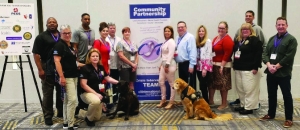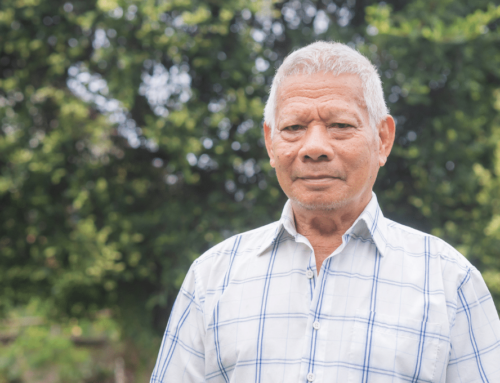For years, Oaks has partnered with law enforcement agencies to help improve the quality of first-responder interactions with persons living with mental health or addiction disorders. The Crisis Intervention Team, commonly referred to as “CIT,” is an innovative model first debuted in 1988 in Memphis, Tennessee.

As mental health professionals, Director Renee Carrillo and her team at Oaks work with police and other partners to help reduce potentially harmful encounters between law enforcement and those with mental illness. Key elements of the program are educating police department personnel about how to handle these encounters, deescalating possibly tense or dangerous situations, and helping them find ways to cope with the stress and trauma they experience as part of their work. Police and other first-responders often have higher rates of divorce, alcohol use and suicide than other occupations.
Renee recently attended the International Crisis Intervention Team (CIT) Conference in Seattle, Washington, meeting with others who do similar work across the U.S. and in foreign countries. Drawing inspiration from one another by sharing their experiences, these gatherings highlight best practices. “It was exciting to learn about new approaches to help partner with law enforcement and address the homeless from teams from Ohio to Florida,” she said. “I was really gratified to learn that Oaks and New Jersey are on the vanguard of trends and practices. Other areas are sometimes reluctant to embrace new practices or they lack the resources to implement them. We are so fortunate,” she reported. She also met Major Sam Cochran, founder of CIT. She explained that Steininger Behavioral Health, one of Oaks’ “roots” organizations, had been an early adopter of CIT.
Through Justice Involved Services (JIS), Renee’s team also works to divert nonviolent mental health consumers from the criminal justice system, connecting them to appropriate mental health and social services systems in the community. “We’ve had some great successes with these programs. Given the widespread and growing issues around substance use disorders and opioid addiction, we need to have alternative processes to get people the real help they need,” explained Carrillo.
For more information about CIT-NJ, please visit www.cit-nj.org.









